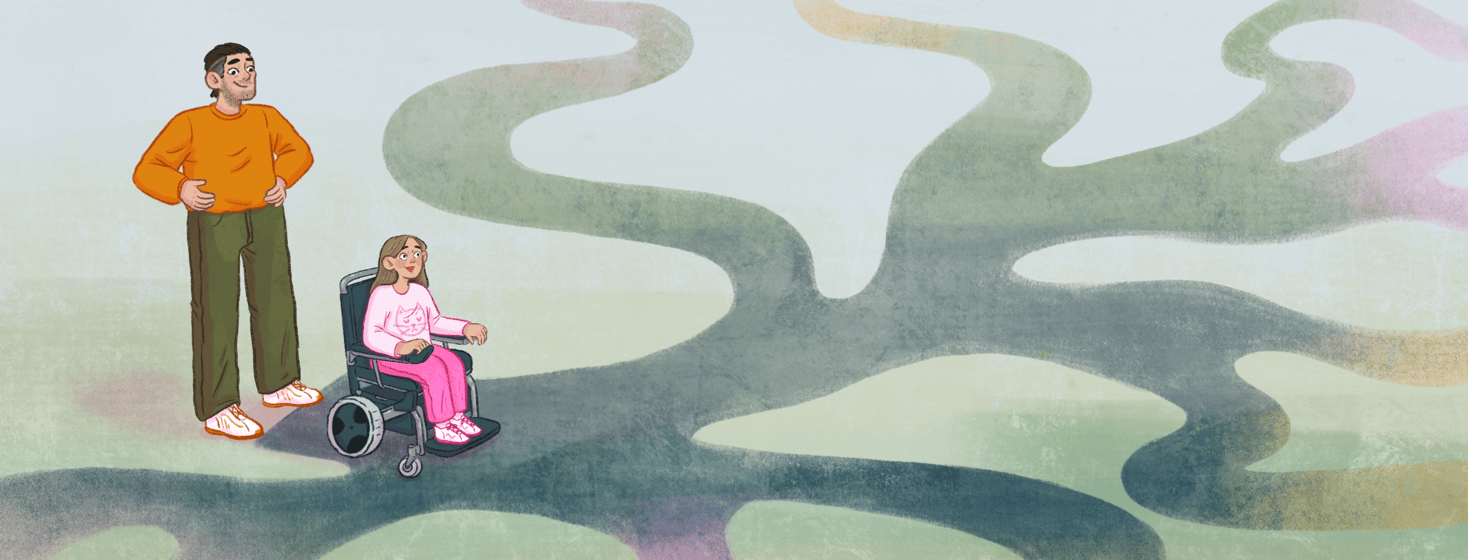Helping My Daughter Make Choices and Experience Life
I realized that we, as parents of a child with spinal muscular atrophy (SMA), were trying to do everything possible to meet her needs. There were many choices in life that she could not make.
Therefore, I felt she needed to learn how to make choices and be exposed to new experiences in life. Additionally, I felt that there were things that she had a choice in experiencing.
Most choices were outside of her control
However, many medical choices were made for her without getting her input. In addition, there were basic choices that she could make on her own.
Teaching our daughter to choose
Therefore, my wife and I did not want to make her existence become a passive way of living. We wanted to teach her how she could make some of her own choices, whenever possible.
So, each time an opportunity arose, we let Jessie make her own basic choices independently. At first, she was given a choice of toys to play with.
What clothes will I wear?
Then she was given a choice of two outfits to wear to school. When she went to kindergarten, she chose to wear clothes similar to her classmates. Additionally, as she got older, Jessie chose which learn which store she wanted to go into to select her clothes. She had her distinctive style in clothing.
Her favorite saying was, "I don't want to shop in a store that sold food and clothes together." This was her choice. She further said, "I don't want to go into a big store to buy clothes, that announced when you opened the door, ..."Attention, K-Mart customers...."
What courses do I want to study?
Subsequently, in high school, she had a choice in planning her elective courses. She chose her elective courses in computer programming.
In high school, she chose to learn computer programming in the computer language codes of the day. She became experienced enough to write elementary computer programs and helped me develop an articulation communication program for the computer that I used for my Master’s Thesis. Both of us successfully co-presented it to my professors.
Experiences like the other children
I wanted Jessie to have experiences in life similar to what other children have had. We took her to recreational parks and beaches. Furthermore, Jessie loved going to amusement parks and rides and going on vacations.
In fact, in the late 1970s, she was chosen to be one of “Jerry’s Kids”. Jessie was chosen to be the poster child of the annual Jerry Lewis Labor Day Telethon from New York-Long Island! She willingly attended most public fund-raising events on Long Island and participated in raising funds for “Jerry’s Kids.”
In the winter, we would go to a Catskill Mountain resort hotel in upstate New York. At five years of age, she was not able to walk but wanted to be like the other girls and go ice skating with their parents at the Brown's Hotel. Subsequently, I put on my ice skates and took Jessie in her umbrella stroller as we went on the ice. We whizzed around the rink and did figure eights whereby Jessie experienced the movement and sensations of having the cold air softly caressing her face as she felt the awareness of her long, honey-golden hair blowing in the wind.
At her Bat Mitzvah party, the band played a song she liked for the father-daughter dance, I took her up to the dance floor in her electric wheelchair and deftly danced with my gleeful daughter. Like the other Bat Mitzvah girlfriends, she experienced the joy of the moment, dancing with her dad!
Also, Jessie experienced learning how to swim and ride a horse at a handicapped riding academy for physical rehabilitation.
Expanding Jessie’s choices and life experiences helped further her educational and social development. These events were written to show how one family worked together in helping a child with spinal muscular atrophy develop skills necessary for ongoing educational, social, and emotional growth.

Join the conversation